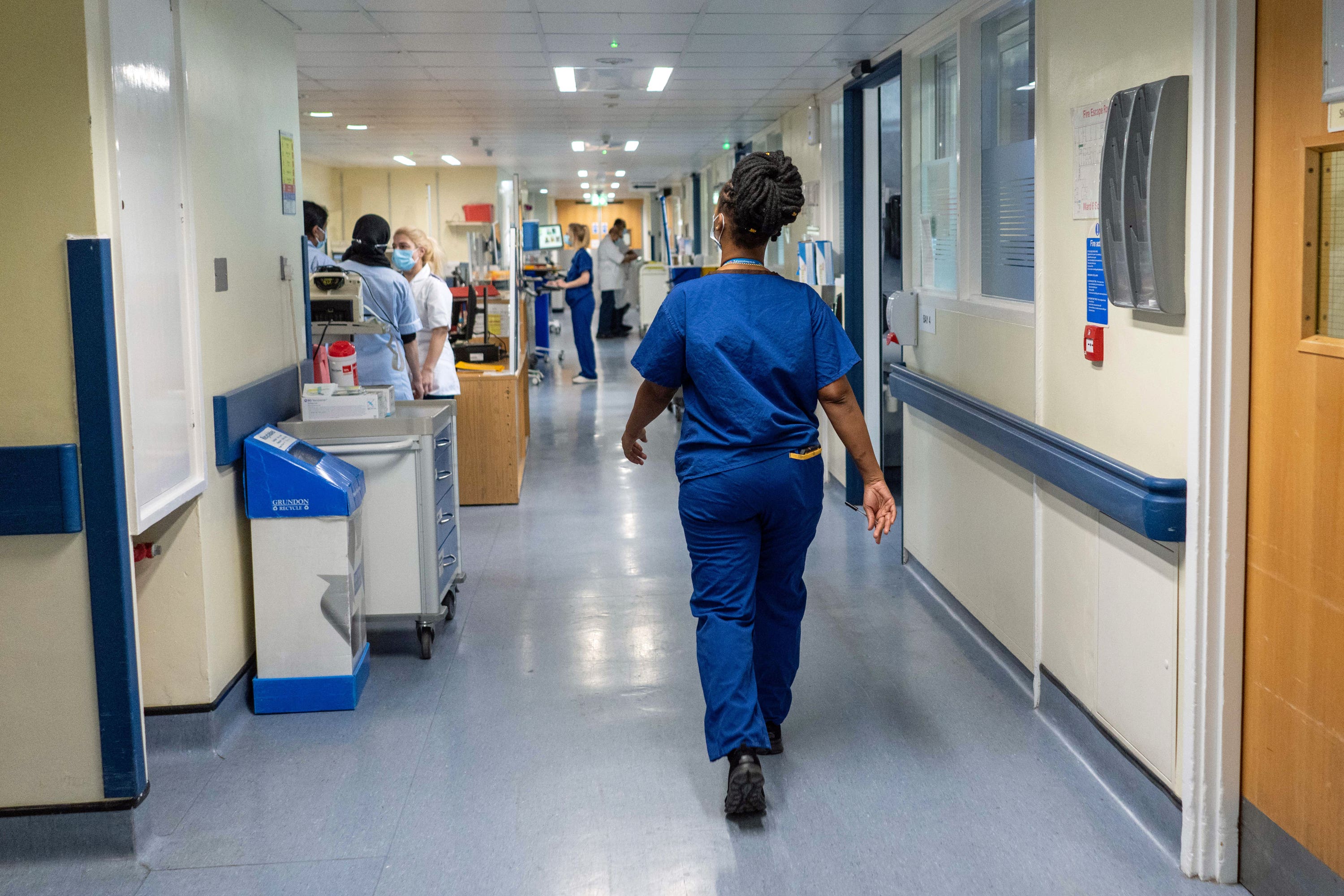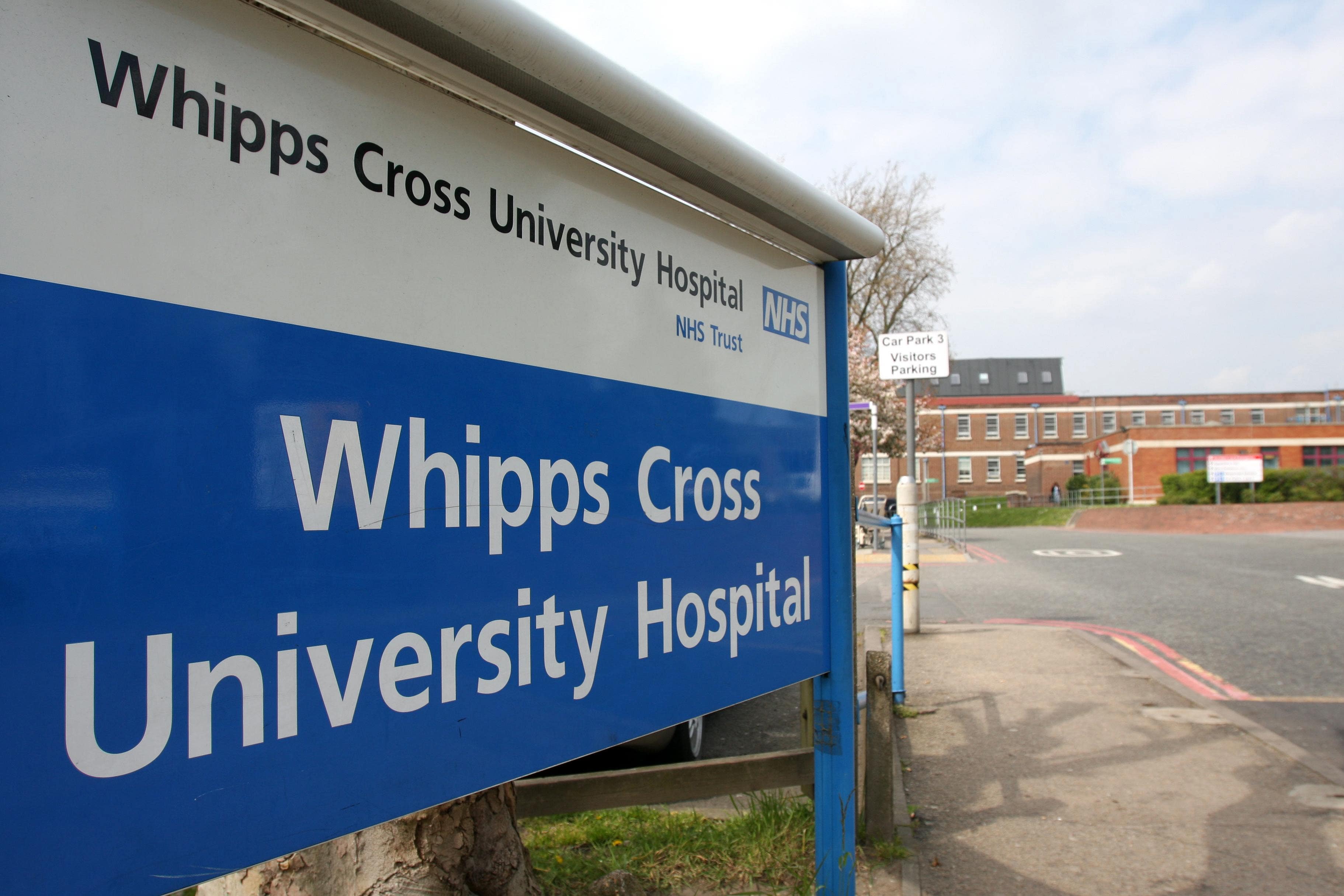Doctors warn of ‘dire’ staffing at weekends and nights as overtime pay is cut
Exclusive: Two hundred doctors have written to executives at Barts Health warning patients are at risk after overtime rates were cut
Doctors have warned that a plan to cut overtime pay will slash the number of hours they work, pushing stretched NHS resources to the limit.
Hospitals have been accused of putting patients at risk of harm, with a doctors’ union chief branding the move as “bordering on negligent”.
More than 200 doctors at one of the largest NHS trusts, Barts Health Trust, hit out over cuts to overtime and locum rates, warning any reduction would make it harder to plug staffing gaps and leave patients at risk, according to letters leaked to The Independent.

One in 10 doctors work at least 11 hours overtime a week, figures show, tackling high waiting times for A&E care and routine operations. Overtime is particularly central to the busy winter period and less popular shifts such as night shifts and weekends.
Consultants at London’s Whipps Cross Hospital, run by Barts Health, told leaders that the hospital relies “heavily” on its locum workforce to ensure patient safety and warned that the staffing situation in the trust was “dire”.
Other hospitals have also been forced to cut overtime rates normally used to encourage staff to work extra and freeze hiring processes in efforts to save money, with one warning NHS is having to make “unpalatable decisions” as it cannot rely on any new treasury funds.
The most recent annual NHS staff survey said 9.8 per cent said they worked between six to 10 hours of unpaid overtime and 42 per cent of staff reported working up to five hours of unpaid overtime each week. NHS doctors have to work 40 hours under their contracts.
Miriam Deakin, director of policy and strategy at the organisation, which represents NHS hospitals, said: “On top of existing challenges, including higher demand in winter and over 120,000 vacancies across the NHS, industrial action is making this task much harder.”
She said NHS trusts could explore lowering the rates for “bank” shifts, which are overtime or unfilled shifts, however she warned this could discourage staff from agreeing to do shifts and force hospitals to spend money on expensive agencies to fill rota gaps.
Alison Leary, professor of healthcare and workforce at South Bank University echoed Ms Deakin’s warning over the need for costlier agency workers if overtime was less attractive and said managers need to think carefully about accommodating doctors’ needs for flexibility.
“I don’t think employers understand why people work bank and agency in the first place. This is around flexibility and accommodating, for example, the female workforce who want to work around childcare hours. It’s not greedy people, it’s people wanting flexibility,” she said.
Dr Philip Banfield, British Medical Association council chair, said “With workforce shortages across the country it’s bordering on negligent for NHS employers to take actions likely to make services even less well staffed.

“It makes zero sense to cut rates at any time of year, let alone during the depths of winter, when pressures on the health service are particularly acute on a daily basis – and in the absence of any strike action.”
He said the NHS can no longer rely on good will and until doctors’ pay rates are properly addressed, hospitals will need to market rates to incentivise staff to work additional shifts.
One letter, sent by A&E doctors at Whipps Cross Hospital to Barts Health trust leaders, said: “As doctors working in the emergency department at Whipps Cross, we have experienced rapidly deteriorated conditions this autumn in respect to staffing, overcrowding, horrendous waiting times, and the increased clinical risk that we and our patients are therefore exposed to.
“These conditions are only going to get more difficult as we move into the new year. We therefore find it extremely surprising that the trust would seek to cut the pay of bank doctors working in the Emergency Department at Whipps Cross, especially at a time when working conditions are so adverse. The fact that this was attempted a few weeks before the Christmas period is beyond belief.”
The letter adds that doctors are not going to accept their pay being cut and will not take the additional shifts at reduced rates.
Doctors working in A&E at Whipps Cross face a 30 to 40 per cent cut in overtime rates they were previously getting following the changes, The Independent understands.
One senior medic at Barts Health told The Independent that 10-hour or more A&E waits had now become “commonplace” and that the situation in the emergency department for patients was “dire”.
Three other letters were also sent to leaders by paediatric, aesthetic and surgical doctors at the trust, with the same warning.
In a fifth letter, dozens of senior consultants at Whipps Cross Hospital said if the hospital leaders don’t back down there is a risk of doctors and leaders “playing chicken” and staffing gaps going unfilled.
A spokesperson for Barts Health said: “We have not cut bank rates but strengthened our controls over the circumstances in which we might pay more than the agreed London Local Rate. Previously, some bank staff were able to secure shifts well in advanced at the escalated rate, which is not standard practice, as escalated rates are only meant for late notice shifts offered 48 hours before the shifts begin.
“By strengthening measures, we are offering equitable rates and we are ensuring bank shifts can be booked further in advance so we can better plan how we care for patients safely.”
The trust said 92 per cent of the trust’s shifts in December were covered by bank workers.
Data published by NHS England last week showed 151,000 patients waited more than 12 hours in A&Es after arriving during December.
Join our commenting forum
Join thought-provoking conversations, follow other Independent readers and see their replies
Comments
Bookmark popover
Removed from bookmarks